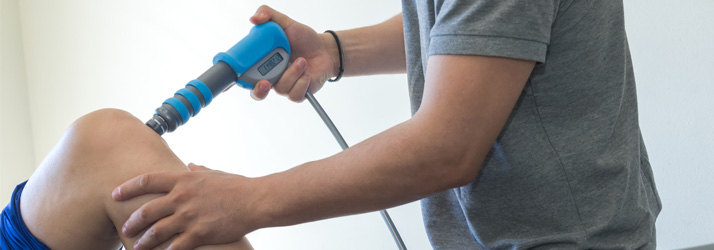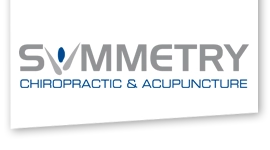Shockwave Therapy For Knee Pain: What You Should Know in Naperville IL
Shockwave Therapy for Knee Pain: What You Should Know in Naperville IL

Knee pain can be a persistent and limiting issue, affecting everything from daily movement to long-term quality of life. Whether it's due to osteoarthritis, tendinitis, or overuse injuries, many individuals are searching for effective, non-invasive treatments that provide lasting relief. One emerging solution gaining attention is shockwave therapy.
Designed to stimulate healing in damaged tissues, shockwave therapy in Naperville IL is becoming a popular option for people who want to avoid surgery or prolonged use of pain medications. If you're struggling with knee discomfort and looking for modern, science-backed treatments, understanding what shockwave therapy is-and how it can help-might be the next step toward getting your mobility and comfort back.
What Is Shockwave Therapy and How Does It Work In Naperville IL?
Shockwave therapy is a non-invasive treatment that uses high-energy acoustic waves to stimulate healing in damaged tissues. Originally developed to break down kidney stones, this technology has been adapted for musculoskeletal conditions, including knee pain. The therapy involves directing focused shockwaves to the affected area of the knee, which promotes increased blood flow, cell regeneration, and the breakdown of calcific deposits that may contribute to pain.
The mechanism behind shockwave therapy is based on the body's natural healing response. When these high-energy waves penetrate the tissue, they cause microtrauma that triggers a healing cascade. This includes the formation of new blood vessels (angiogenesis) and the release of growth factors that support tissue repair. Over time, this leads to decreased pain and improved function in the treated knee.
For people with knee pain, especially those with chronic issues, this non-surgical option can offer a path to recovery that doesn't involve lengthy downtime or medications. It's typically administered in a clinic and requires no anesthesia, making it convenient and accessible for a wide range of patients.
Types of Knee Conditions Treated with Shockwave Therapy
Shockwave therapy has shown promising results for a variety of knee-related conditions, particularly those involving soft tissue damage or chronic inflammation. It's often recommended when traditional treatments such as physical therapy, anti-inflammatory medications, or cortisone injections have failed to provide sufficient relief.
Some of the most common knee issues treated with shockwave therapy include:
- Patellar tendinopathy (jumper's knee): Inflammation or degeneration of the tendon connecting the kneecap to the shinbone.
- Iliotibial (IT) band syndrome: Pain caused by friction of the IT band against the outer part of the knee.
- Osteoarthritis: Degeneration of joint cartilage and underlying bone, leading to stiffness and pain.
- Calcific tendinitis: Calcium deposits within the tendons causing irritation and restricted movement.
- Post-surgical pain or scarring: Chronic discomfort following knee surgeries where scar tissue impacts mobility.
By addressing the root cause-be it inflammation, restricted blood flow, or micro-tears-shockwave therapy offers a versatile solution for multiple knee pain scenarios. However, a proper diagnosis is crucial to ensure that this treatment is appropriate for the specific condition affecting your knee.
Benefits of Shockwave Therapy for Knee Pain
Shockwave therapy offers several benefits for individuals suffering from knee pain, making it a compelling alternative to more invasive procedures. One of the most significant advantages is its ability to accelerate the body's natural healing processes without the need for surgery or long-term medication use.
Patients often report reduced pain and improved mobility after just a few sessions. The therapy stimulates the release of endorphins, which can provide immediate pain relief. Over time, as tissue regeneration takes place, the long-term effects become more noticeable. This is particularly beneficial for chronic conditions like tendinopathies or early-stage osteoarthritis, where ongoing inflammation can be difficult to manage.
Another major benefit is the non-invasive nature of the treatment. Since it doesn't involve incisions, injections, or anesthesia, there's virtually no downtime. This allows patients to return to their daily routines almost immediately, which is especially valuable for those with busy lifestyles or limited ability to take time off for recovery.
Additionally, shockwave therapy has a lower risk of side effects compared to pharmaceutical interventions and can be used in combination with other therapies like physical therapy or stretching programs to enhance overall outcomes. These benefits collectively make shockwave therapy a practical, low-risk solution for managing and potentially reducing knee pain over the long term.
What to Expect During a Shockwave Therapy Session
For many people, the idea of undergoing a new treatment can be intimidating, especially if they're unfamiliar with the process. Fortunately, shockwave therapy sessions are generally quick, straightforward, and require minimal preparation or recovery.
A typical session begins with the clinician identifying the specific area of the knee where the pain originates. Ultrasound gel is applied to the skin to ensure proper transmission of the shockwaves. The shockwave device is then pressed against the skin, delivering high-energy pulses to the targeted tissue. The treatment usually lasts between 10 to 20 minutes, depending on the severity and size of the area being treated.
Here's what you can expect during the session:
- Mild discomfort: Some patients feel a tapping or tingling sensation, but it's generally well-tolerated.
- No anesthesia needed: The procedure is performed without numbing agents, and most people resume normal activities right afterward.
- Gradual improvement: Relief typically builds over a series of sessions, with many patients seeing results after 3 to 5 treatments.
- Minimal side effects: Mild bruising, swelling, or soreness may occur but usually resolves within a day or two.
Understanding what happens during a session can help set realistic expectations and ease any anxiety. If you're considering shockwave therapy for knee pain, knowing what to expect can help you feel more confident and prepared.
How Shockwave Therapy Compares to Other Knee Pain Treatments
When evaluating treatment options for knee pain, it's important to compare the effectiveness, safety, and recovery time associated with each approach. Shockwave therapy holds a unique place among non-invasive options, often outperforming some traditional methods in long-term effectiveness and patient satisfaction.
Unlike cortisone injections, which mainly mask pain temporarily, shockwave therapy aims to heal the underlying tissue damage. While medications can provide fast relief, they do little to address root causes and often come with side effects, especially when used long-term. Surgery, while sometimes necessary, involves higher costs, extended recovery, and greater risk of complications.
Physical therapy remains a cornerstone for managing knee pain, and it often complements shockwave therapy well. However, for chronic issues that don't improve with exercise alone, shockwave can serve as an effective next step before resorting to more invasive measures.
Other treatments like platelet-rich plasma (PRP) injections or stem cell therapy may offer regenerative benefits similar to shockwave therapy, but they tend to be more expensive and less accessible. In contrast, shockwave therapy is both cost-effective and widely available, with a growing track record of success in clinical settings.
Ideal Candidates for Shockwave Therapy
Shockwave therapy isn't right for everyone, but it can be highly effective for the right candidates. Knowing whether you fall into that category can help you determine if this treatment is worth pursuing.
You may be a good candidate for shockwave therapy if you:
- Have chronic knee pain that hasn't improved with rest, physical therapy, or medication
- Are dealing with a soft tissue injury like patellar tendinitis or IT band syndrome
- Want to avoid surgery or reduce dependence on pain medications
- Are in overall good health without underlying conditions that impair healing
- Are not pregnant, have no blood clotting disorders, and are not using blood thinners
Shockwave therapy is typically not recommended for individuals with certain medical implants near the treatment area, advanced nerve damage, or severe osteoarthritis that may require joint replacement.
Ultimately, an evaluation by a medical professional can confirm whether shockwave therapy is suitable for your specific condition and health profile. If you meet the criteria, this treatment can offer a promising path to reduced pain and restored knee function.
If you're considering shockwave therapy to relieve your knee pain, Symmetry Chiropractic & Acupuncture in Naperville, Illinois offers expert, personalized care. Dr. Timothy Erickson specializes in non-invasive treatments like shockwave therapy to help patients regain mobility and live pain-free. Schedule your consultation today and take the first step toward lasting relief. Your knees will thank you.
OFFICE HOURS
Monday
9:30am - 12:30pm
3:00pm - 6:00pm
Tuesday
9:30am - 12:30pm
3:00pm - 6:00pm
Wednesday
9:30am - 12:30pm
3:00pm - 6:00pm
Thursday
9:30am - 12:30pm
3:00pm - 6:00pm
Friday
9:30am - 12:30pm
3:00pm - 6:00pm
Saturday
9:30am - 12:30pm
Sunday
Closed
Symmetry Chiropractic & Acupuncture
3108 Illinois Rte 59 Ste 124
Naperville, IL 60564



